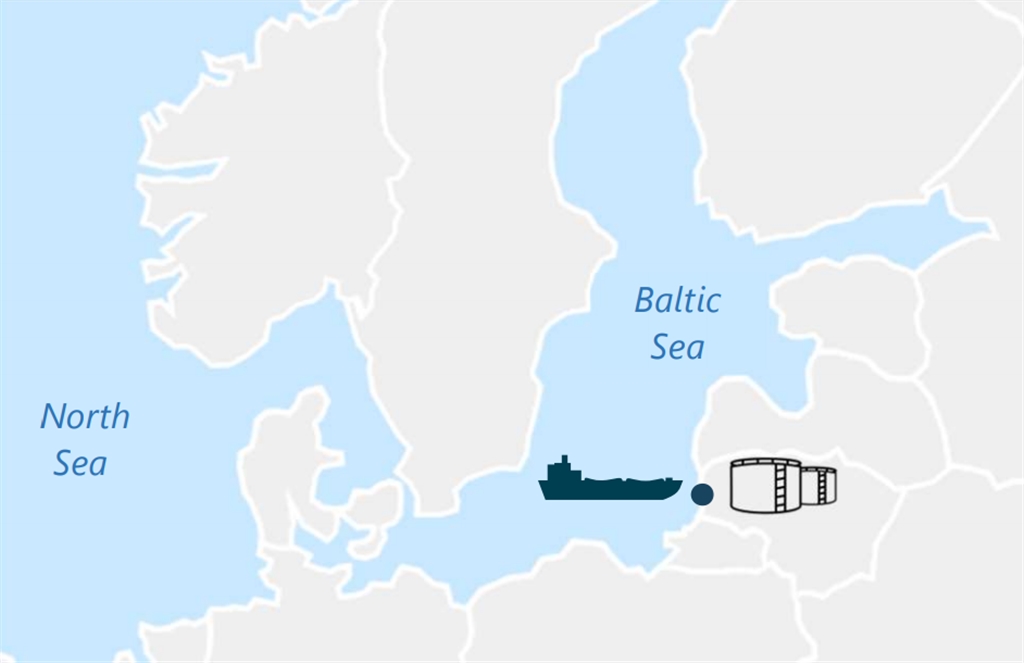As global economies evolve their energy systems to tackle climate change challenges, a broad spectrum of solutions is under active evaluation. Carbon capture, utilisation and storage (CCUS) is a powerful technological enabler on the path towards sustainable energy future that is acknowledged in European Green Deal and widely seen as critical to achieve net-zero economy by 2050. Several CCUS projects are under way in Europe with clear commitment to create environmental and economic benefits for emission intensive industries that are hard to decarbonise.

AB Klaipedos nafta (KN), Larvik Shipping AS (LS) and Mitsui O.S.K. Lines, Ltd. (MOL) acknowledge the potential for CCUS and have reached an agreement to commence a feasibility study to develop liquefied CO2 (LCO2) loading facilities at KN’s existing infrastructure in Klaipeda, Lithuania. The entire concept shall be to develop a LCO2 logistics and value chain from Lithuania and potentially Baltic region with Klaipeda seaport at the centre.
The verified emissions from installations covered by the European Emissions Trading Scheme (ETS) in Lithuania alone reached approximately 6 million tonnes of CO2 in 2020 and put pressure to find the most suitable carbon management solution for the local market. The National Energy and Climate Action Plan of the Republic of Lithuania for 2021-2030 identified carbon capture as a promising area that requires further investigation to seek the best possible application in Lithuania. Insights of carbon management gained in the feasibility study may also help accelerate the clean hydrogen production from fossil fuels.
KN recognises the importance and synergy of hydrogen and carbon markets and during 2020 participated in the formation of the Lithuanian Hydrogen Platform – a platform that brings industry and government together in the joint decarbonisation effort.
The main task of the feasibility study will be to identify optimised design and configuration to export CO2 to one or more sequestration facilities within Europe. It also includes the possibility to produce blue hydrogen as an important and necessary solution to reach zero emission economy.
Within the scope of the project KN covers the onshore and terminal handling part to, utilise its deep knowledge accumulated through oil product and LNG experience.
LS, who has more than 30 years track record in LCO2 marine transportation, accepted equity from MOL on 19th March, 2021, and both companies now work closely to accelerate LCO2 business together with MOL’s extensive experience in transportation of various types of cargoes on worldwide basis. LS and MOL make contribution to bring efficient and feasible marine logistics solution.
With the above combination the parties intend to cover the major logistics part of entire CCUS value chain.
KN is an oil and LNG terminal operator company headquartered in Lithuania and has become a player in the global LNG market. KN brings proven developmental and operational know-how as well and bridge energy markets by enabling customers to supply and trade energy resources worldwide. KN currently owns and operates two oil and two LNG terminals in Lithuania, also is LNG terminal operator of largest gas to power project in Latin America located in Port of Açu, Brazil.
Larvik Shipping AS is a Norwegian ship management company headquartered in Larvik. It is one of very few companies in the world qualified to operate LCO2 vessels. With safe transportation and extensive cargo-handling know-how, LS has managed dedicated LCO2 tankers trading in Europe for more than 30 years
Additional information about the Port of Klaipeda at CruiseMapper
MOL is a Japanese multi modal marine transport company headquartered in Tokyo, Japan. It is one of the largest shipping companies in the world, who operates more than 800 ships. MOL fleet includes dry cargo ships, liquefied natural gas carriers, Ro-Ro Car Carrier ships, tankers, container ships, and also diversifies its business to offshore business and maritime related industries such as container terminals.